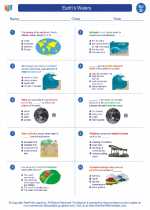Meiosis
Meiosis is a type of cell division that occurs in sexually reproducing organisms. It is a process that produces gametes, or sex cells, such as sperm and egg cells. Meiosis involves two successive divisions, resulting in four daughter cells, each with half the number of chromosomes as the parent cell.
Phases of Meiosis
Meiosis consists of two main stages: meiosis I and meiosis II.
Meiosis I
- Prophase I: Homologous chromosomes pair up and exchange genetic material in a process called crossing over.
- Metaphase I: Paired homologous chromosomes line up at the center of the cell.
- Anaphase I: Homologous chromosomes separate and move to opposite poles of the cell.
- Telophase I: Two daughter cells are formed, each with a haploid set of chromosomes.
Meiosis II
- Prophase II: The nuclear envelope breaks down, and a new spindle apparatus forms.
- Metaphase II: Chromosomes line up at the center of the cell.
- Anaphase II: Sister chromatids separate and move to opposite poles of the cell.
- Telophase II: Four haploid daughter cells are formed, each with a unique combination of genetic material.
Significance of Meiosis
Meiosis is essential for sexual reproduction because it produces genetically diverse gametes. It also ensures that the number of chromosomes is halved in the gametes, allowing for the combination of genetic material from two parents during fertilization.
Study Guide
- What is the purpose of meiosis?
- Describe the key differences between meiosis I and meiosis II.
- Explain the significance of crossing over during prophase I of meiosis.
- How does meiosis contribute to genetic diversity in a population?
- Compare and contrast meiosis with mitosis.
Understanding meiosis is crucial for grasping the mechanisms of sexual reproduction and genetic inheritance. It's important to review the phases and key concepts to gain a comprehensive understanding of this fundamental biological process.
.◂Science Worksheets and Study Guides Fourth Grade. Earth's Waters

 Worksheet/Answer key
Worksheet/Answer key
 Worksheet/Answer key
Worksheet/Answer key
 Worksheet/Answer key
Worksheet/Answer key
 Vocabulary/Answer key
Vocabulary/Answer key
 Vocabulary/Answer key
Vocabulary/Answer key
